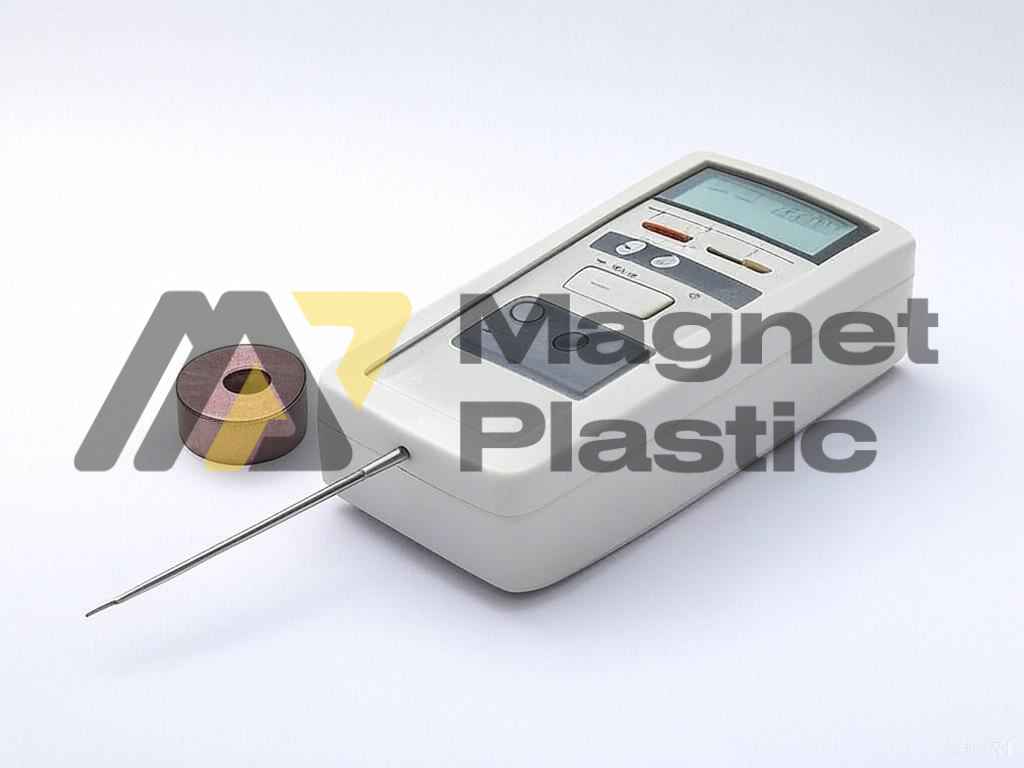Gaussmeter: Measuring Magnetic Fields
The gaussmeter is an indispensable instrument for measuring the intensity and orientation of magnetic fields. Named after the German mathematician and physicist Carl Friedrich Gauss, this device has evolved to become a key tool in multiple sectors. From scientific research to practical applications in industry and health, the gaussmeter plays a crucial role in the analysis and control of magnetic phenomena.
What is a gaussmeter?
The gaussmeter is a device designed to measure magnetic flux density, usually expressed in Gauss (G) or Tesla (T). It is capable of detecting both static magnetic fields, such as those generated by permanent magnets, and dynamic magnetic fields, produced by electric currents. This instrument can be used to assess magnetic field intensity and direction in a variety of contexts.
Depending on the model, gaussmeters work through different physical principles:
Hall sensors: These use the Hall effect, which generates a perpendicular voltage when an electric current passes through a material subjected to a magnetic field.
Induction coils: These detect changes in the magnetic field through electromagnetic induction.
Magneto-resistive sensors: These measure variations in the electrical resistance of a material when it is under the influence of a magnetic field.
The typical design of a gaussmeter includes a probe, a processor to interpret the signals, and a screen that displays the measurements in real time. More advanced models also allow data to be stored and analyzed.
Main applications of the gaussmeter
The gaussmeter has a wide variety of uses, from advanced research to practical tasks in everyday environments. Some of its main uses are:
Industry and manufacturing
Magnetic quality control: It is used in the production of magnets to ensure that they meet the required specifications.
Electrical Equipment Testing: In electric motors and generators, the gaussmeter verifies that the magnetic field is adequate for optimal performance.
Scientific and Geophysical Research
Studying the Earth’s Magnetic Field: Scientists use it to analyze magnetic variations on the planet, which can reveal information about its internal structure.
Materials Physics: In laboratories, the gaussmeter allows magnetic properties in novel materials to be investigated.
Medicine and Health
Medical Equipment Calibration: In devices such as magnetic resonance imaging (MRI) machines, the gaussmeter ensures that magnetic fields are accurate and safe.
Environmental Magnetic Field Assessment: Some professionals measure fields in homes and offices to study potential health effects.
Practical Applications
Technical Diagnostics: It allows magnetic fields to be detected in electric motors or transformers in household appliances.
Security: It is used to identify hidden metal objects or electronic devices in access controls.
Emerging Innovations and Applications
Technological advancement has taken the gaussmeter to new horizons. In the renewable energy industry, these devices are key to measuring the efficiency of magnetic generators in wind turbines. In the automotive sector, they are used to optimize electric motors in hybrid and electric vehicles.
Likewise, in modern electronics, gaussmeters ensure the accuracy of magnetic sensors in devices such as mobile phones, where functions such as digital compasses and camera stabilization depend on accurate magnetic measurements.
Conclusion
The gaussmeter is an indispensable tool in the modern era, where magnetism plays a fundamental role in science, technology and industry. Its ability to accurately measure magnetic fields makes it an essential resource for optimizing processes and developing innovations. From the laboratory to the factory and beyond, the gaussmeter continues to be a key ally in technological progress.
